 Just like the foot race marathon, you don’t get bragging rights until you actually do it. And, appropriately, this year’s Poetry Marathon took place during the summer Olympics. So while I was toiling away at my poetry prompts and posting poems to the official marathon blog, runners from around the world were competing for gold, silver and bronze medals in Rio.
Just like the foot race marathon, you don’t get bragging rights until you actually do it. And, appropriately, this year’s Poetry Marathon took place during the summer Olympics. So while I was toiling away at my poetry prompts and posting poems to the official marathon blog, runners from around the world were competing for gold, silver and bronze medals in Rio.
Unlike the Olympics, the Poetry Marathon is an annual event. I originally posted on it here, and the PM website offers a complete history and FAQ of the event. While I’ve known about the event for several years, this is the first year I participated. Luckily for me (and many others), the organizers have created a half marathon, which is what I completed. Both marathons start at 9:00am ET on writing day (Aug 13 this year), then every hour for 12 or 24 hours, participants are expected to write a poem and post it to the PM website. Each participant gets their own login on a group WordPress site, then as each participant publishes a poem, which is housed on their own blog space, it is also posted to the whole group blog. If you look at the site now, what you see are the poems posted by the participants as they came in.
If this sounds like a big commitment of a day, it is – or it can be. The organizers are flexible in letting participants commit to (on their honor) writing one poem every hour and then posting them when they can get to a computer. Some participants commented on having to go to work, so while they were writing the poems, they wouldn’t be posting them until later. Even for me, with a day “off,” I couldn’t be at the computer every hour of the day.
Bottom line: Was it fun? Was it engaging? Was it worthwhile? Yes, yes, and yes. Would I do it again? Absolutely. Until you do it, you don’t quite “get it.” Write a poem an hour? Anyone can do that on their own. But it was motivating (even a bit demanding) being in the community, committed to having to publish poems up to the website, having to be responsible every hour of the day. In fact, even while I was just sitting working at the computer, I almost missed one of the hours because I was so caught up in my work. I realized it with only five minutes left in the hour and scrambled to catch up! The pressure! It was wonderful. As were the prompts, which the organizers provide at the top of every hour. I admire those writers who had their own ideas for poems, but I relied heavily on the prompts to give me something to write about and get the writing done. There were many who did the same, and it was engaging to see the various interpretations of the prompts – a lot of really creative writers.
When it was done – 12 hours and 12 poems later – I felt a deep sense of pride and accomplishment. Not that I believe I wrote 12 astonishing poems that will shake the world. But because I wrote 12 poems in 12 hours as part of a community of people who were just as eager and committed as me. Surrounded for a whole day by an entire community of poets – reading, writing, commenting, and then doing it all over again, and again, and again. I think immersion is the right word.
I also learned that not everyone will be able to appreciate the experience if you try to share your joy at the accomplishment. “I just finished a poetry half marathon!” I exclaimed to my husband as I walked away from the computer at 9:00pm after just having posted my final poem. “Okay,” he said, not turning away from his laptop.
What you get out of it is definitely personal. Unlike the foot race, and unlike the Olympics, there aren’t throngs of people cheering your completion, no competitors there to hug you for a good race won. Though the organizers and participants do post encouraging comments for one another and have chat groups running to motivate one another, in the end, the sense of whatever it has meant to you will be completely up to you to generate and to own.
I thoroughly enjoyed the experience, I was challenged, I accomplished my goal, and I hope to be back to do it again next year.
Thank you Poetry Marathon! Congratulations to everyone who completed the half 12 hours of writing and the full 24 hours of writing. I get it: You are amazing!
[Applause]

 “On Writing” is a series of guest posts written by writers for the
“On Writing” is a series of guest posts written by writers for the 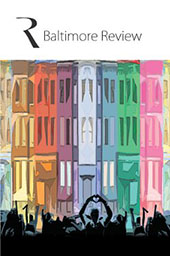 The annual print issue of
The annual print issue of 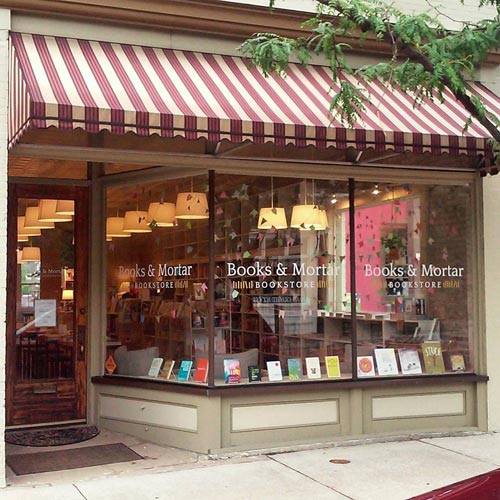 The NewPages
The NewPages 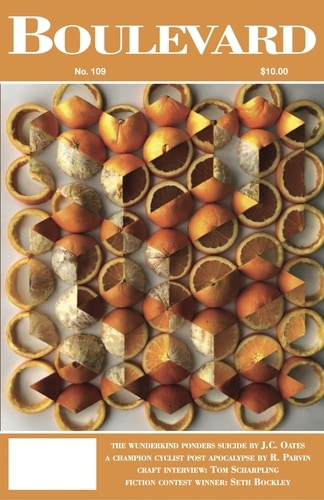
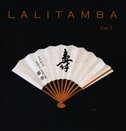
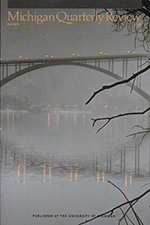
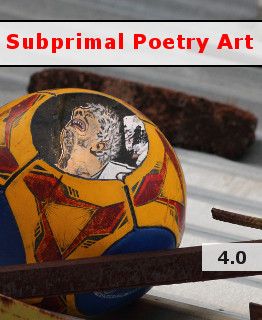 Cynthia Low’s artwork appears both on the cover and is featured inside
Cynthia Low’s artwork appears both on the cover and is featured inside  In addition to work by 17 poets that opens the issue,
In addition to work by 17 poets that opens the issue, 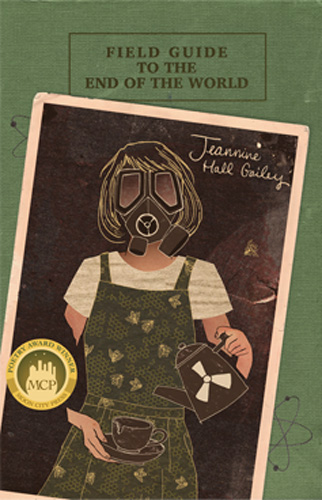 September seems to be the month for award-winning book releases. This month, find the winners of Moon City Press’s 2015
September seems to be the month for award-winning book releases. This month, find the winners of Moon City Press’s 2015 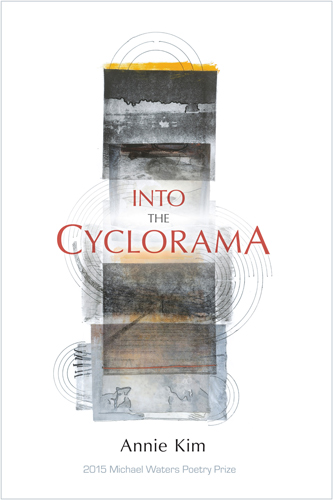 At the end of the year, find Annie Kim’s Into the Cyclorama, winner of Southern Indiana Review’s 2015
At the end of the year, find Annie Kim’s Into the Cyclorama, winner of Southern Indiana Review’s 2015 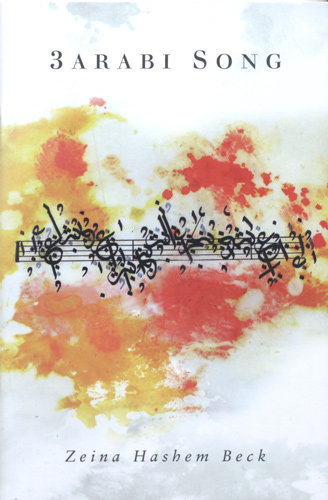 If anyone needs more encouragement to subscribe to your favorite literary magazines, Rattle’s latest issue to subscribers serves as a reminder.
If anyone needs more encouragement to subscribe to your favorite literary magazines, Rattle’s latest issue to subscribers serves as a reminder.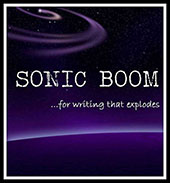 First Place
First Place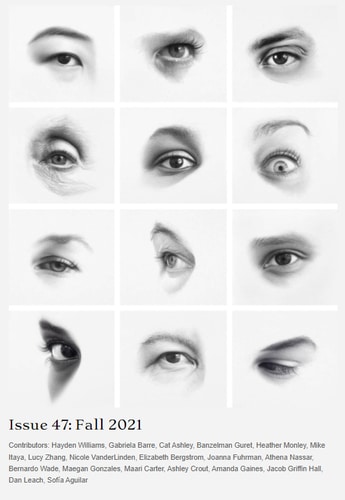 The newest issue of
The newest issue of  Eklund herself is a scholar of early modern literature and Associate Professor of English at Loyola University New Orleans. She has published articles and chapters in Shakespeare Studies and in essay collections on early modern literature. Her book Literature and Moral Economy in the Early Atlantic: Elegant Sufficiencies came out in 2015 with Ashgate Press, and she has a collection of essays, Groundwork: English Renaissance Literature and Soil Science, forthcoming from Duquesne University Press.
Eklund herself is a scholar of early modern literature and Associate Professor of English at Loyola University New Orleans. She has published articles and chapters in Shakespeare Studies and in essay collections on early modern literature. Her book Literature and Moral Economy in the Early Atlantic: Elegant Sufficiencies came out in 2015 with Ashgate Press, and she has a collection of essays, Groundwork: English Renaissance Literature and Soil Science, forthcoming from Duquesne University Press.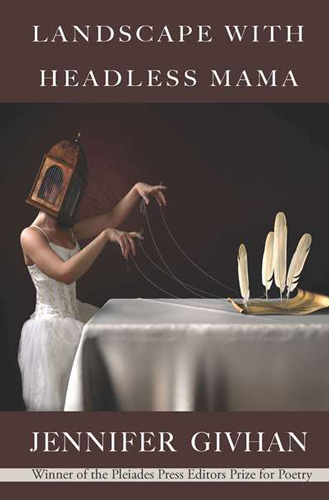 Forthcoming in October is Jennifer Givhan’s Landscape with Headless Mama, winner of the Pleiades Press
Forthcoming in October is Jennifer Givhan’s Landscape with Headless Mama, winner of the Pleiades Press 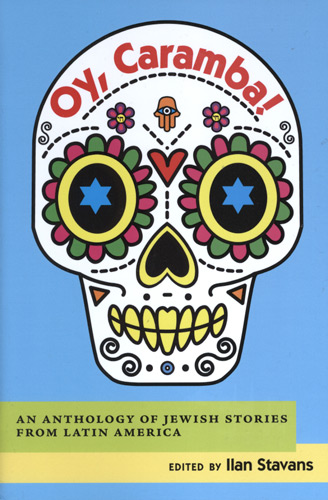 Who doesn’t appreciate a good play on words? The University of New Mexico Press has announced an anthology forthcoming in September, edited by Ilan Stavans, with a title that tickled my pun fancy.
Who doesn’t appreciate a good play on words? The University of New Mexico Press has announced an anthology forthcoming in September, edited by Ilan Stavans, with a title that tickled my pun fancy. 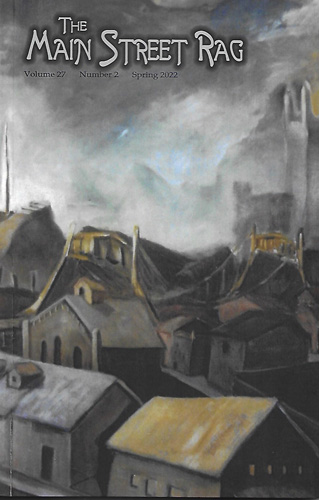 In his Welcome Readers Summer 2016 column, Editor M. Scott Douglass begins, “It may have gone unnoticed since we didn’t make a fuss about it, but
In his Welcome Readers Summer 2016 column, Editor M. Scott Douglass begins, “It may have gone unnoticed since we didn’t make a fuss about it, but  The Summer 2016 issue of
The Summer 2016 issue of  The Meadow
The Meadow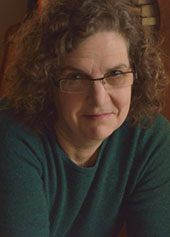
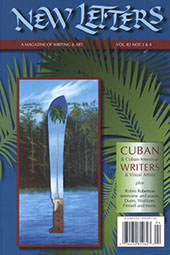 The newest issue of
The newest issue of 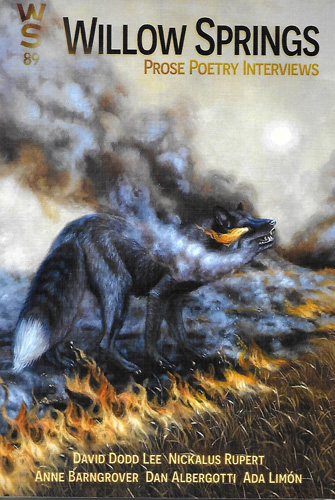 This year’s winner of the
This year’s winner of the  This week’s covers just say “summer” to me, starting with this Spring 2016 issue of
This week’s covers just say “summer” to me, starting with this Spring 2016 issue of 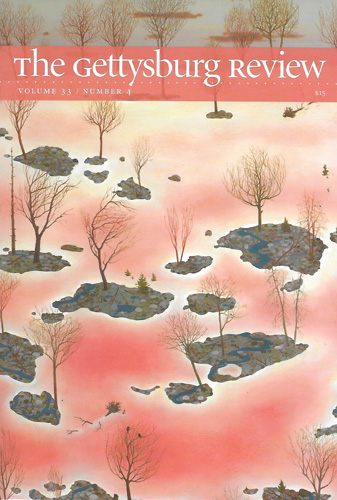
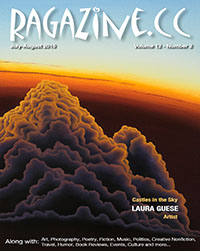 The online publication
The online publication  Just like the foot race marathon, you don’t get bragging rights until you actually do it. And, appropriately, this year’s
Just like the foot race marathon, you don’t get bragging rights until you actually do it. And, appropriately, this year’s 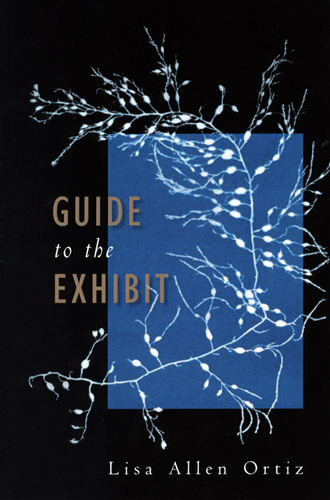 Lisa Allen Oritz took home the
Lisa Allen Oritz took home the 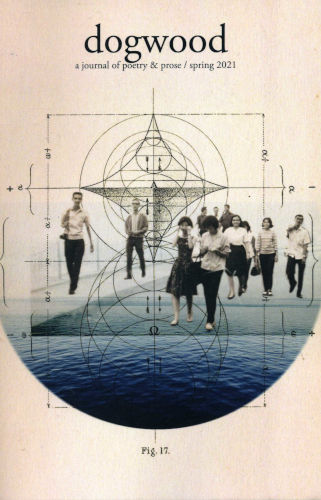 The newest issue of
The newest issue of 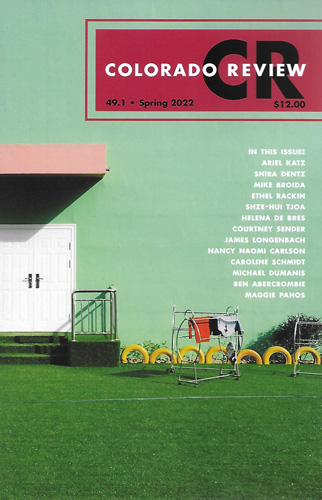 Irresistable:
Irresistable: 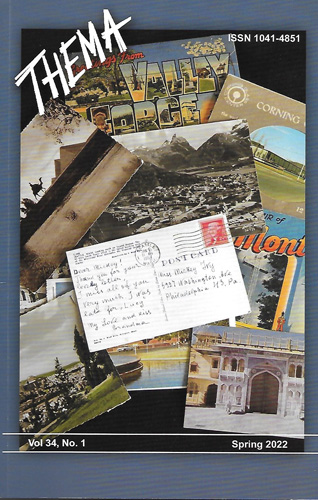
 Along with
Along with 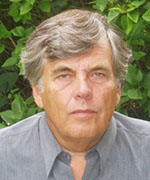 Valley Voices
Valley Voices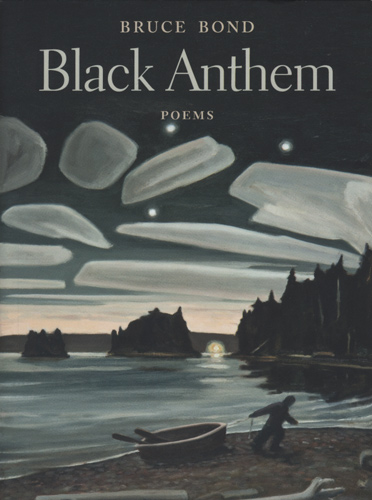 Winner of the 2014
Winner of the 2014 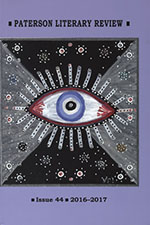 First Prize
First Prize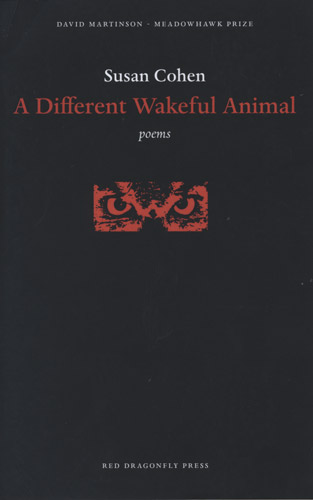 In June,
In June, 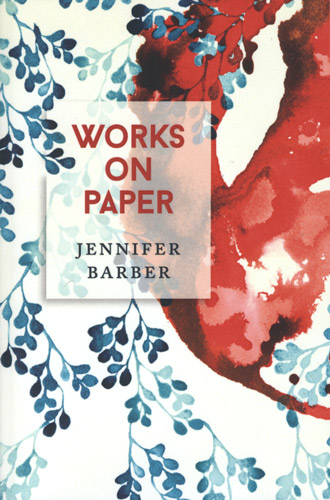 Looking back to May, Jennifer Barber’s
Looking back to May, Jennifer Barber’s  The
The 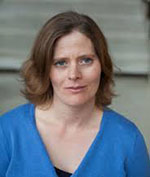 Tonight, I dressed my son in astronaut pajamas,
Tonight, I dressed my son in astronaut pajamas,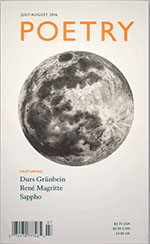 Well, this is a first for me in all the years I’ve been working with literary magazines. The July/August 2016 cover of
Well, this is a first for me in all the years I’ve been working with literary magazines. The July/August 2016 cover of 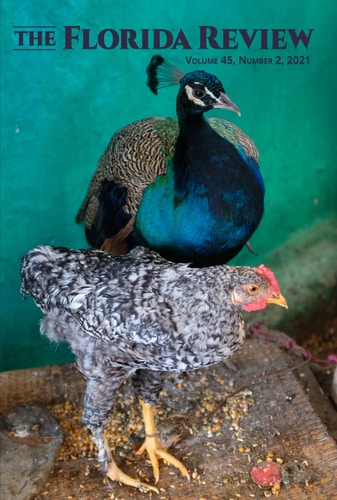 Poetry
Poetry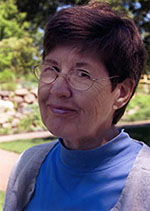 A roadside inn. Lakeside dive. Spiffed up.
A roadside inn. Lakeside dive. Spiffed up.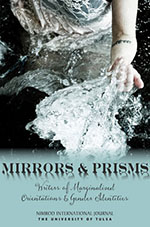 Mirrors & Prisms: Writers of Marginalized Orientations & Gender Identities is the title of
Mirrors & Prisms: Writers of Marginalized Orientations & Gender Identities is the title of  Issue #97 of
Issue #97 of 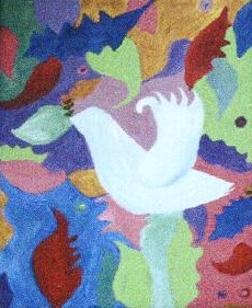 This week marks the eight-year anniversary of online literary magazine
This week marks the eight-year anniversary of online literary magazine 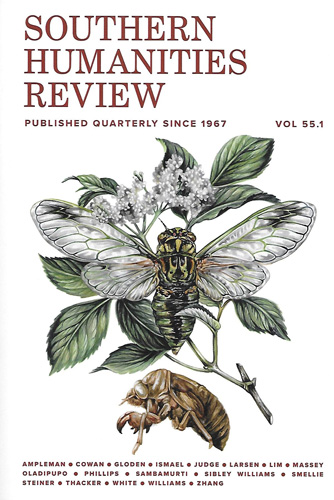 The newest issue of
The newest issue of  The Poetry Marathon
The Poetry Marathon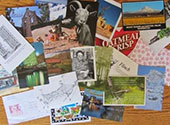 For you newbies, the August PoPo Fest goes like this: You sign up. You get a list of 31 names/addresses of other people who signed up. Starting late July, you write a poem a day on a postcard and mail it off to the next person on the list, so by the end of the month, you will have (hopefully) written and sent 31 poems and (hopefully) received 31 poems.
For you newbies, the August PoPo Fest goes like this: You sign up. You get a list of 31 names/addresses of other people who signed up. Starting late July, you write a poem a day on a postcard and mail it off to the next person on the list, so by the end of the month, you will have (hopefully) written and sent 31 poems and (hopefully) received 31 poems. Every four months,
Every four months,